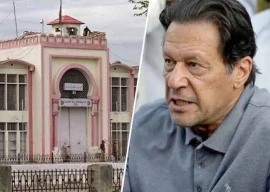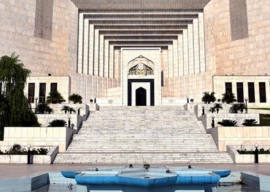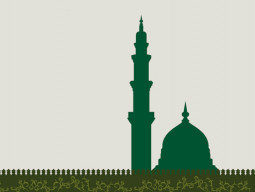
As a seller of sweets in Wana bazaar, Jan was far removed from the war on terror. But then a Taliban attack on May 9, 2009 changed his life inexorably. At the time, Jan was waiting on the Wana-Zhob-Balochistan road for a passenger van to take him to the bazaar. Suddenly, a military convoy which was passing near him came under Taliban attack, and Jan was caught in the crossfire. “I tried to run inside a government school building, but was shot in both legs,” says Jan.
The loss of his lower limbs meant that Jan had to abandon the pagree for good. “It would have been wrong to stretch out my hands for alms with a pagree on my head,” he says.

Now Jan survives on daily handouts in the same bazaar where he sold sweets with dignity. Located in Wana, the main town of South Waziristan, Wana Rustam bazaar is an old market where all three tribes of the area, Mehsud, Wazir and Dottani come together to trade.
There was a time when Jan used to make enough money to send his children to the school in his village – but after his injury his children were forced to give up their studies just as their father had to abandon his pagree. “I spent Rs600,000 on treatment and I owe my debtors a sum of Rs500,000. I do not have the money to settle my debts or afford further treatment. My children are not going to school anymore,” said Jan.
Empty words
The state claims to compensate victims of collateral damage. But, for Jan, the state may as well be a blind and deaf entity. “Time and again, I have submitted requests to several political and military officials for compensation. The government gave me Rs100,000 in compensation a year ago and then washed its hands off me completely,” says Jan.
Before 2001, this area of South Waziristan was prosperous and beggars were a rare sight. Today, one can spot many people like Jan who plod wearily through the bazaar, hoping to get through the day.
 How it used to be
How it used to beIn tribal culture, the community takes care of the poor and needy. Charity is done secretly and respectfully, where anyone in need can visit the hojra (guest house) of his fellow tribesman and be treated as a guest. To ensure that the poor are well looked after, the tribal jirga sets aside a portion of the fines that it collects. But growing lawlessness and unrest in the tribal areas has weakened the influence of tribes in the area. Jirgas are rarely held these days. This has had an impact on the lives of the poor.
“The local tribes used to accommodate Afghan refugees and provide them with accommodation without rent. Now the financial condition of tribesmen is so bad that they are not able to support each other as they used to do,” says Sheryar Khan Mehsud, a local journalist.
Tribal values are not all that is at stake.
The government high school, the only one in the area, was shut down after the 2009 attack. Like Jan’s children, almost 400 other children are out of school. There are also no signs the school will reopen anytime soon.
“Please stop this ugly war,” Jan’s plea is clear and simple.
Published in The Express Tribune, December 24th, 2012.
COMMENTS (2)
Comments are moderated and generally will be posted if they are on-topic and not abusive.
For more information, please see our Comments FAQ


1725443747-0/Untitled-design-(5)1725443747-0-165x106.webp)














Enough is enough .... we need change.?
It's a shame and indication of extent of the damage done by the establishment's propaganda that some people still believe that TTP is a foreign organization.